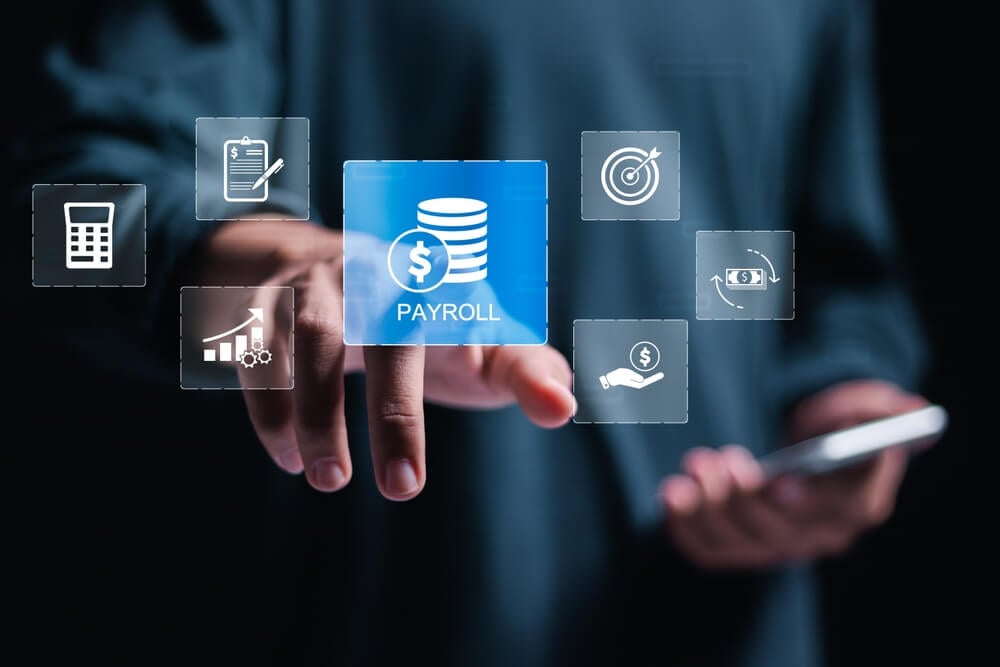There was a time in business where you created a service or developed a product and you opened your doors and tried to convince people to buy your goods or service. How many times have you walked into a business to see their first dollar signed and framed? Ahhh, those were the good old days! Times were much simpler back then.
Sadly, progress happens and that is a bygone era. The day and age of hanging a shingle and watching your business grow is pretty much something of the past. Now there is a mind field of administrative issues to wade through to maintain compliance.
Profit margins grew as did employee rosters. Now the time to celebrate milestone events had ceased due to the constant burden of doing things correctly and the administration of the business became overwhelming. The larger your team grew, the more the list of tasks associated with managing those employees also grew. This is where many companies stagnate in growth. The administrative burden becomes the overriding concern, pulling key team members into the role of HR and away from strategic planning.
In the mid to late 1980’s, a ray of light showed up. This was the birth of the PEO industry. This invention afforded many small to midsized businesses the same level HR expertise as its larger competitors at a fraction the cost. It tends to even the playing field in regarding employee management and benefit offerings.
The truth is there are many myths swirling around regarding what PEO’s can and can’t do. There are many people who will try to tell horror stories regarding what PEO’s can and can’t do that are worn or just blatant lies.
Myth 1: I’ll Lose Control of My Business
When you started out, you had a vision for your company and worked diligently to turn it into reality. Now fear arises that by entering a co-employment relationship with a PEO, you will give up your control.
The PEO is the employer for certain employer purposes like wages, taxes, HR support, benefits administration, etc. which allows you to be freed up to focus on your core business. You remain a co-employer with the PEO and continue to control the direction the company and your employees. As a co-employer, a PEO works as your HR department. It shares and absorbs many of your employer-related risk and duties.
While you’re busy taking care of your day-to-day operations, your PEO takes care of many of the compliance burdens and other HR tasks that likely eat up your time and focus. With a PEO, you won’t be losing sleep wondering if you did things correctly, you’ll be sleeping soundly while the PEO gets things done.
Meet with and ABO professional today to learn how we can help you excel with our turn-key solutions.
Myth 2: I’ll Have to Fire My HR Team
From our experience, HR professionals will find that they have more time to work on strategic projects when they leave the administrative responsibilities up to their PEO.
Few if any senior HR professionals enjoy administrative tasks, like developing an employee handbook or writing job descriptions – they would rather be developing a strategy to increase employee happiness and effectiveness. The catch 22 is if they’re too busy with administrative tasks, they don’t have the time to plan and pursue strategy. Conversely, if they don’t give attention to administrative tasks, things fall through the cracks, or worse, become out of compliance.
With the HR Manager acting as the head and the PEO the arms and legs, all the administrative tasks get covered which frees the HR Director to do strategic thinking; it’s a win-win. For example, your HR Department can now focus on developing the staff through better training opportunities, which strengthens the organization.
Additionally, when you work with a PEO, you gain access to a team of HR professionals who are experts in very specific parts of the HR realm. It’s very hard to be a master in workers’ compensation, payroll, benefits administration, HR compliance, risk management, and client relations. A well ran PEO is the equivalent of a Fortune 500 companies HR Department.
Your HR specialists are always available in the event your internal team is not. For example, if your HR director is absent or occupied, you still have the team of HR professionals who can make sure you have the best and most up-to-date information should an issue arise.
Myth 3: My Staff Will Be Considered Temps!
This “temporary employee” myth – that employees are employed only by the PEO – is likely rooted in the common misperception that a PEO is the same as a temporary employment or a staffing company.
This is simply not true. In a co-employment relationship with a PEO, your company continues to employ your employees along with the PEO. The PEO does not become the sole employer and then assigns the employees to the company, but rather shares a co-employer relationship with the company. In short, the company manages the day to day operation, with full direction and control while the PEO takes on the fiduciary responsibility and a lot of liability.
Myth 4: I Will Lose The Power to Decide Who Gets Hired and Fired
When it comes to who gets hired and who gets fired, your company still controls how those decisions are being made. Management will feel empowered by knowing they are making the correct decision for any given scenario as it relates to the slippery slope that is labor law. With the assistance of your PEO’s HR specialists, faster and more accurate decisions will follow.
For example, your managers will be able to lean on the expertise of the PEO to follow an appropriate process in cases of discipline or disputes. They will learn about properly documenting the process from start to finish to cover the company’s liability. This way you can make sure everything is handled and documented properly, in the event of an unemployment claim.
With improved technology and processes that a PEO like America’s Back Office provides, it makes dealing employees much more manageable. Having all the data about your employees in a system that is a mouse click away, makes decision more precise and faster.
Myth 5: My Employees Won’t Like the Change
I have never heard of employees leaving their company due to it entering a PEO relationship. Honestly, the opposite is probably true. When with a PEO, your employees have access to benefits that rival that of a Fortune 500 company – including health insurance, retirement and other benefit plans – even if the company is very small.
PEOs don’t get involved with the day-to-day operations of a company. Their goal isn’t to change the culture of the company. The PEO is there to enhance the culture of the company and create a more productive and engaged employee which translates to a more vibrant workplace. In fact, the National Association of Professional Employment Organizations (NAPEO) reports that using a PEO creates a 12% lower employee turnover rate.
For more details on how to build a turnkey worker compensation program, see our article on “The Definitive Guide to Workers Compensation”.


